
Same but different – the new Isuzu D-Max and Mazda BT-50 may not look like twins on the outside, but make no mistake, the Mazda BT-50 is simply a re-skin of Isuzu's D-Max.
For those who don't know, the new Mazda BT-50 and new Isuzu D-Max share fundamentals of chassis, engine and drivetrain, bulk interior architecture and are even built upon the same factory line.
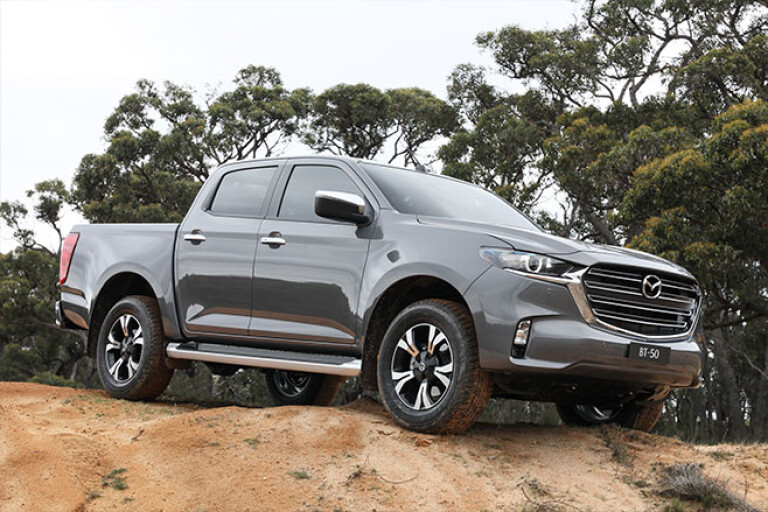
With all those similarities, it could be difficult to decide which one is the better buy.
Let’s dig into the details to lay out all the differences and analyse which is the right purchase.
What's shared between the Isuzu D-Max and Mazda BT-50?
Given the shared underpinnings, both cars offer same base level of performance of 140kW/450Nm from a 3.0-litre turbo-diesel four-cylinder engine.
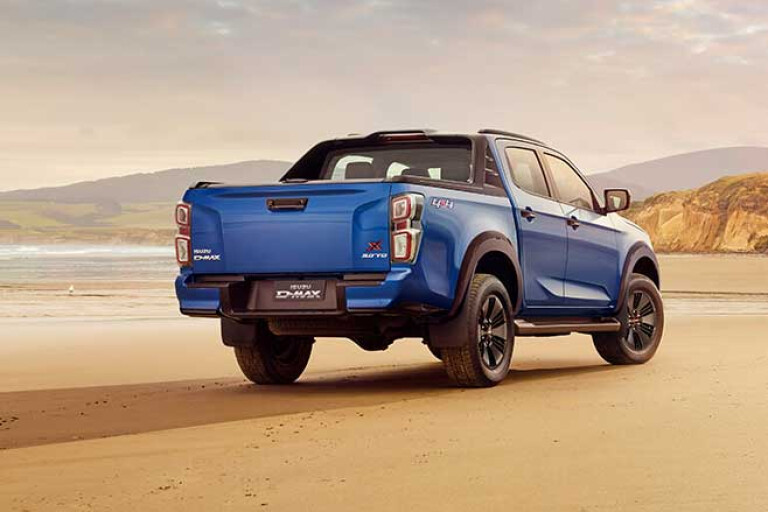
This engine is a wholesale revision of the previous Isuzu 3.0-litre turbo diesel engine, which traditionally found favour from the 4x4 crowd who valued it for its reliability and durability.
Quoted fuel consumption is the same for both, with an 8.0L/100km combined claim for auto transmissions which is bettered slightly if you opt for a manual (7.7L/100km).
Both utes have a maximum braked towing capacity of 3500kg – pretty standard for a 4x4 dual-cab ute – and both have payloads of nearly 1100kg dependent on variant and body style.
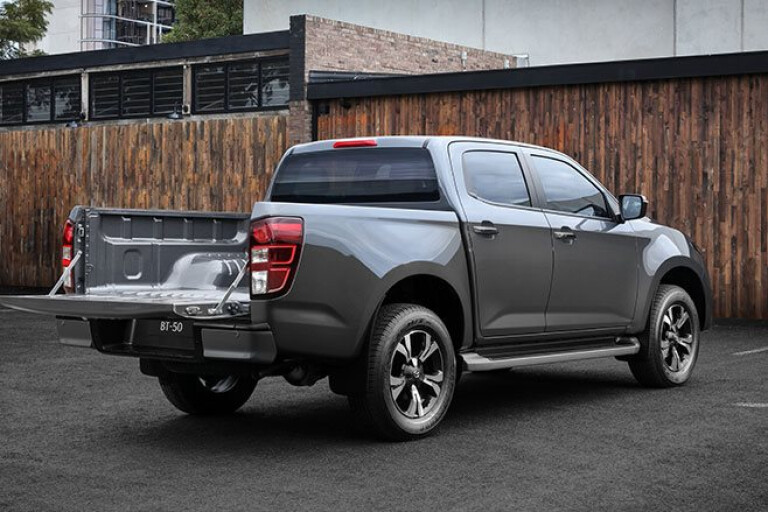
Off-road wise, both the Isuzu D-Max and Mazda BT-50 share approach, departure and ramp-over angles of 30.5, 24.2 and 23.8 degrees, respectively.
Each is able to wade in depths up to 800mm, and is equipped with a rear locking differential for the tough spots.
What are the differences between the Isuzu D-Max and Mazda BT-50?
Many differences lie in the specification and variant offerings.
Mazda for example, isn’t bringing a single-cab or space cab version to market until 2021, and currently offers a three-tiered range including the XT, XTR and GT variants.
Isuzu is now selling an entire range of body styles in four main grades including SX, LS-M, LS-U and X-Terrain.
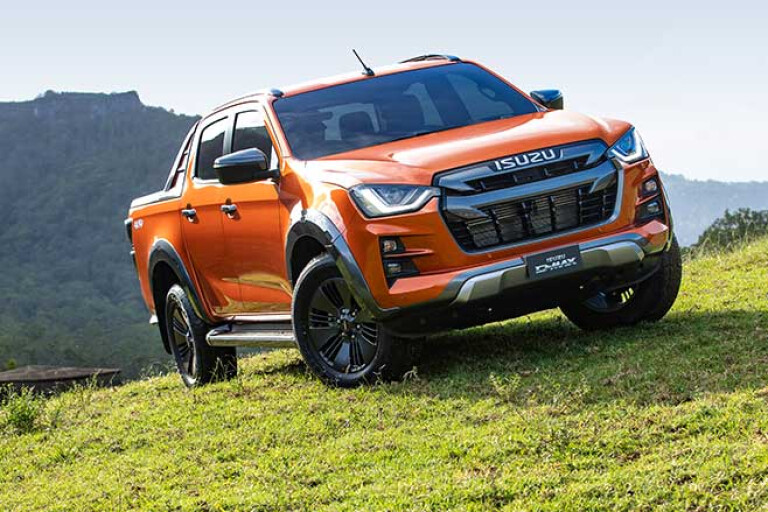
If you’re after a more specific variant or body style, there’s no doubt that Isuzu is the clear choice – at least for the moment.
Things start to change more when you get inside, though you'll have to look hard to spot the differences.
Both cars have taken a step forward in terms of ambience and feel compared to their predecessors.
Each receives a 9.0-inch infotainment screen which runs Apple CarPlay and Android Auto on top-spec models, and a smaller digital read-out finds itself nestled within the instrument cluster to provide key vehicle information. Entry-level variants in each range equip a 7.0-inch infotainment screen.
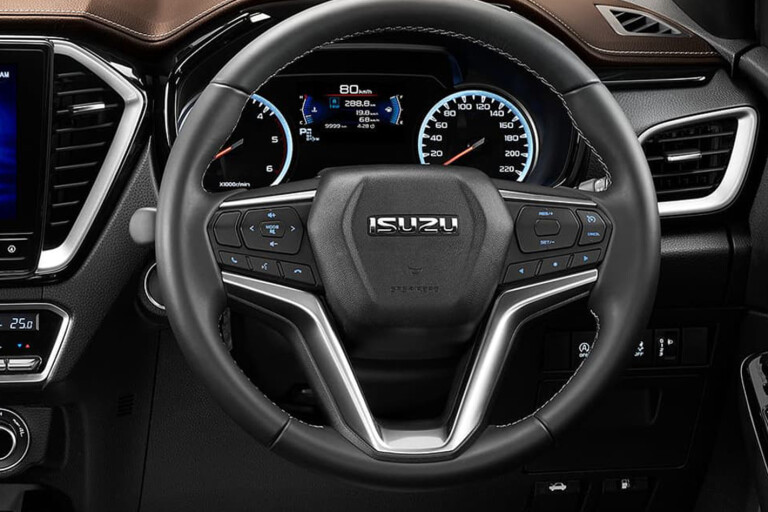
Dual-zone climate control, rear air vents, leather-appointed seats and keyless entry are some other hallmarks of the updated specification on top spec Isuzu D-Max and Mazda BT-50 models.
Pretty line-ball between the two, no doubt. The top spec Mazda BT-50 GT does use brown part-leather seats with added seat heating in place of the Isuzu D-Max X-Terrain's part-leather non-heated black seats.
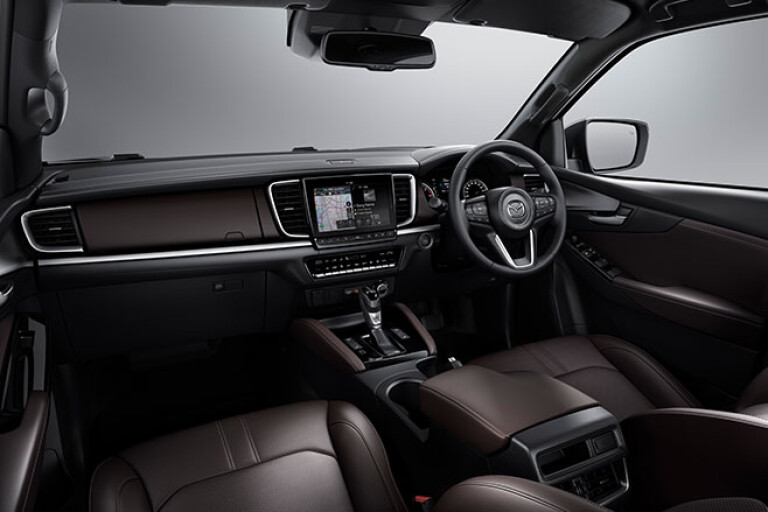
Materials are largely the same between the two, and of course the main difference will be the branding on the steering wheel.
Instant asset write-off scheme extension a lifeline to car industry
A full suite of active safety tech including autonomous emergency braking (AEB), blind-spot monitoring, rear cross-traffic alert and reversing camera and lane departure warning is standard on both utes.
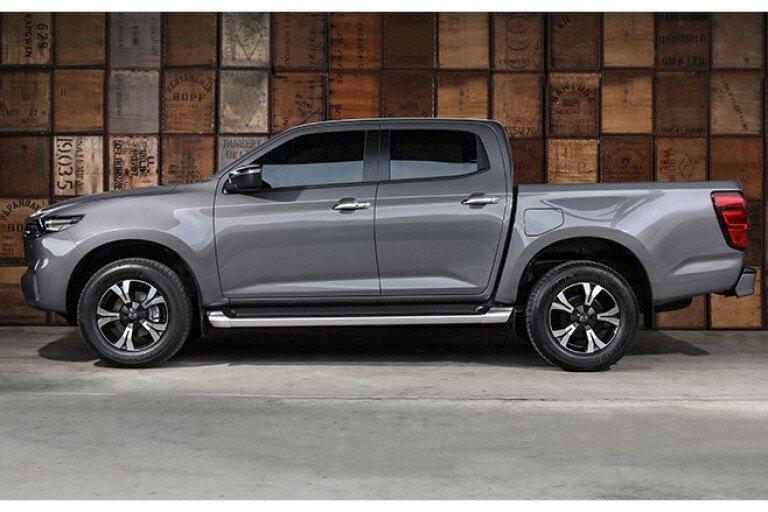
In most cases, the BT-50 offers slightly more equipment than the closest equivalent D-Max variant, though these additions are small.
For example, keyless entry and start is standard on XTR and GT spec BT-50s, but only on the top-spec D-Max X-Terrain.
The BT-50 is sold with a spare alloy wheel, where the D-Max only ships with a steel spare.
Pricing for Mazda BT-50 and Isuzu D-Max
Price-wise, they don't make it easy to compare like-for-like. Model variants don't quite match up for cross-shoppers, but some inferences can be made.
At the top end of their respective ranges, the $59,990 BT-50 GT compares favourably against Isuzu’s range hero, the X-Terrain ($62,900).
On the other end of the scale (talking 4x4 drivetrains and entry-level specifications), it's the $47,900 D-Max SX manual 4x4 dual-cab that's more affordable than the $50,760 BT-50 XT manual 4x4 dual-cab.
In terms of add-ons, Isuzu charges $500 for metallic paint whereas Mazda offers it at no cost.
Conversely, Mazda charges $2500 for an automatic transmission which Isuzu only charges $2000 extra for.
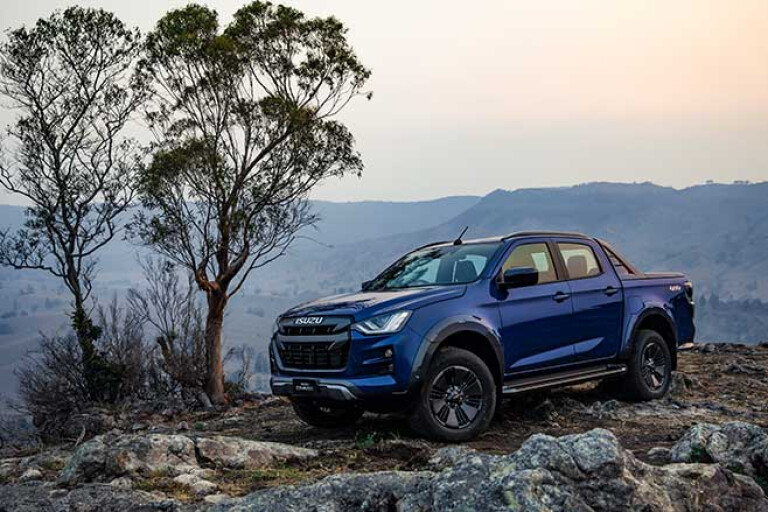
There are some big differences to consider after the purchase as well, with both pros and cons to each’s warranty period.
Mazda provides a better deal for owners who’ll go the distance with a five-year/unlimited-kilometre warranty, whereas Isuzu provides an additional year but caps the distance with a six-year/150,000km deal.
At the end of the day, the purchasing decision weighs more heavily in the ‘subjective’ column rather than the ‘objective’.
Which one should you buy - the Isuzu D-Max or Mazda BT-50?
Go for the Isuzu D-Max if you're after a greater range of choice, lower price of entry and longer warranty.
Or you could pick the Mazda which counters with a slightly higher spec level for its three variants as well as a few extra bits of fruit on the top-spec.

COMMENTS